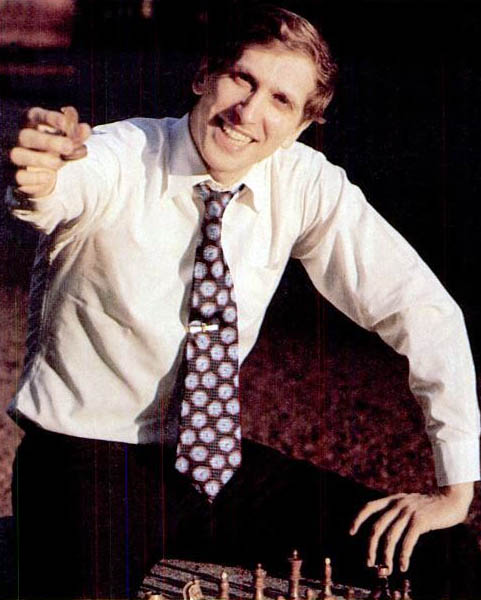zanzibar: <Chess Professional>It's partly a question on income sources. Which is always interesting, especially for the players during the "coffee-house" era.
Yes, I know, Kasparov is the final word on chess professional, being one of original founders of that eminent institution - PCA.
But despite admonishments from the gallery, my fondness for links has not diminished, so to finish:
<<Polgar>>
<"You have to be very selfish sometimes", said Polgár in speaking of the life of professional chessplayer. "If you are in a tournament, you have to think of yourself—you can't think of your wife or children—only about yourself."[127] When asked in 2002 if she still desired to win the world championship she said, "Chess is my profession and of course I hope to improve. But I'm not going to give up everything to become world champion; I have my life."[45]>
http://en.wikipedia.org/wiki/Judit_...
<<Morphy>>
<Permit me to repeat what I have invariably declared in every chess community I have had the honor of entering, that I am not a chess professional player - that I never wished to make any skill I possess the means of pecuniary advancement - and that my earnest desire is never to play for any stake but honor.>
http://www.chessquotes.com/player-m...
<<Bisguiser>>
< “He [Fischer] changed many of our lives,” Bisguier said. “I would have never become a chess professional without him.” Bisguier, who became a grandmaster in 1957, gave up a promising career as a computer programmer to work for the USCF as a chess promoter, all in the wake of Fischer’s success.
He alluded to modern-day millionaire grandmasters like Garry Kasparov and Vaselin Topalov owing their financial comfort to Fischer’s grandstanding.
“He made it feel like it was something we could have,” Bisguier said.>
http://www.uschess.org/content/view...
<<ilan>>
< kokiri - one is reminded of the famous Bill Hartson (UK chess player/commentator) quote, "It's not that chess drives sane people mad, I think it keeps mad people sane.'ilan: I agree with this last statement most of all. Otherwise, I feel that the big difference between Go and Chess, at the elite level, is that Go has had a history of professionalism, with pretty much constant support for top players for the last 400 years. On the other hand, such professionalism did not exist in chess until the rise of the Soviet School after World War II. >
http://senseis.xmp.net/?MadnessAndC...
I'm not alone in my belief above Soviet Chess.
And here in Cambridge we also have some views of the matter from a well-known local as to what constitutes a chess professional:
<<Stepak>>
<I first introduced myself to Steve Stepak cautiously—after all, what do you expect from someone who plays chess 12 hours a day? Sans his usual cap, but wearing an equally distinctive green sweater jacket and long black trenchcoat, Stepak was more than willing to talk. First, he wanted to set the record straight. There is a major fork in the ideologies of the Au Bon Pain (ABP) chess masters—there are those who play chess as a sport, and those who see chess as something far more. Stepak asserts that, unlike the former “chess hustlers,” he himself was a “chess professional.”>
http://www.thecrimson.com/article/2...
And as an aside: some photos of local events from the past by Stepak:
http://boylston-chess-club.blogspot...
C'est suffit pour le moment, ta!







